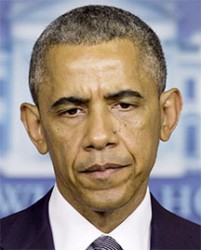WASHINGTON (Reuters) – Only two-and-a-half weeks after US President Barack Obama announced a historic prisoner exchange and re-establishment of long-broken ties with Cuba, his new policy is encountering obstacles that threaten to flare up when Congress returns next week.

Questions surrounding Havana’s human rights record and the promised release of Cuban detainees have the potential to inflame anti-Havana passions on Capitol Hill, where the House and Senate are expected to hold hearings soon after they resume on Tuesday.
Whether the obstacles amount in the long run to anything more than speed bumps on the way to wider detente remains to be seen. But at a minimum, they illustrate how benefits from Obama’s ditching of a nearly half-century of US isolation of Cuba won’t come quickly or without rancorous debate.
Signalling that it will continue to suppress dissent, the government of Cuban President Raul Castro on Tuesday detained more than 50 activists, dissident leaders said, to squelch a planned gathering in Havana’s Revolution Square. And dissidents reported new detentions on Thursday.
The crackdown brought sharp condemnation from the US State Department. All of those detained had been released by the weekend, dissidents said.
There is also concern over when 53 people Washington considers political prisoners will be released and on what terms. A senior Obama aide said at the time of the Dec 17 announcement that Cuba had agreed to free them as part of the deal to restore diplomatic relations and that an unspecified number of them were already released. Raul Castro referred to Cuba’s freeing of a group of persons the US “has shown interest in” as part of his announcement of the wider deal but didn’t mention a number.
But Cuban dissident groups say they believe that most of them remain in some kind of detention. The White House has steadfastly refused to release the names of the 53 and has not shared the list with the dissident groups.
A source with knowledge of the agreed prisoner release told Reuters the delay stems from lack of a final deal on where the prisoners will go – leaving for the United States or Europe, or staying in Cuba. In the past the Cuban government has preferred that such prisoners leave the country when released. But some are likely to insist on their right to stay in Cuba and continue fighting for their political rights.
The confusion over those releases and the latest dissident round-ups have provided ammunition for congressional critics of Obama’s Cuba policy. Those lawmakers have said they will seek to slow or block improved ties with Havana.
“The Castro regime’s latest acts of repression against political dissidents in Cuba make a mockery of President Obama’s new US-Cuba policy,” said Sen Marco Rubio, Florida Republican and a potential 2016 presidential candidate. “The fact that the regime continues to violate the human rights of Cubans like this shows that it has even less incentive to change its ways” after Obama’s deal with Castro, Rubio said.
One early legislative fight over Cuba policy could come when Congress considers funding for the Department of Homeland Security.





